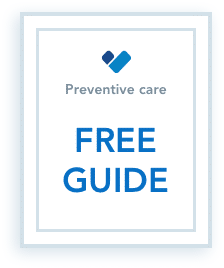What is an HMO?
HMO? PPO? POS? What does it all mean? When picking a health plan that is best for you and your family, you may be hit with a slew of acronyms. These things all stand for different kinds of health insurance plans, and they translate into different kinds of benefits and coverage.
Grab our free guide to HMOs, PPOs, and other types of health plans here.
An HMO, or health maintenance organization, is one such plan. What is an HMO? It’s a type of health insurance plan that limits coverage to medical care from doctors who specifically contract with that HMO. It typically does not cover out-of-network care except in an emergency. This can leave people with higher out-of-pocket costs depending on the kind of care they need. But, you’ll notice when shopping for health insurance on the Marketplace or HealthSherpa that HMO plans typically have lower cost monthly premiums than other kinds of plan. So, depending on how you plan to use your health coverage, an HMO may or may not make the most sense for you financially.
You can see health plans and prices by entering your zip code below.
How does an HMO provider network work?
To understand how an HMO works, you first need to understand provider networks. This term refers to a group of health care providers — from doctors to pharmacies to hospitals — who contract with a given health plan. Larger provider networks mean more options for care.
An HMO network is limited to those who specifically contract with that HMO plan. Anyone who contracts with this plan is in-network. Anyone who doesn’t is out-of-network. And with an HMO, your plan will not pay for any out-of-network costs, meaning that any doctor seen or hospitalization with an out-of-network provider means you’ll be paying the full out-of-pocket costs for that care.
What does a Primary Care Physician do in an HMO plan?
With an HMO, you pick a primary care physician (PCP) who is typically an internal medicine specialist who assumes the role of steering the ship of your health care. An HMO can be a good health plan choice for someone who likes the idea of having a strong relationship with one doctor who can help manage their relationship with other specialists as needed.
Given the role a PCP plays in an HMO, it means that these kinds of plans are also good for those who have a relationship with a PCP who is already in-network with their HMO, are not necessarily tied to other kinds of specialists that may exist outside of the HMO provider network, and don’t typically need to access health care out-of-town.
Your annual physical exam with your PCP is covered with a $0 copay thanks to the Affordable Care Act. Preventative care is key to helping keep yourself healthy — and keeping your health care costs low.
When do you need referrals for an HMO plan?
If you need to see a specialist of any kind, your PCP will need to provide a referral for that doctor in order for your health plan to cover your going to that doctor. Sometimes, this can involve an added trip to your PCP for evaluation first.
Typically, referrals aren’t needed when it comes to emergency care and routine ob/gyn care.
How do PPOs differ from HMOs?
You can check out our informative video on HMOs vs PPOs from our co-founder, Cat Perez.
HMO plans tend to have lower premiums than PPO (Preferred Provider Organization) plans, but PPO plans give you access to a larger network of doctors. HMOs typically don’t cover out-of-network care, whereas PPOs cover out-of-network care, although at a lower rate than they cover in-network care. If you plan on seeing out-of-network providers, your out-of-pocket costs may be lower with a PPO. But if you plan on staying in-network, an HMO may have lower premiums. You can search here to see plans and prices and find the most affordable option for you.
Grab our free guide to HMOs, PPOs, and other types of health plans here.
What are all of my health insurance options?
- Marketplace/Obamacare plan. You can enroll in a Marketplace health insurance plan, also known as Obamacare or Affordable Care Act insurance. See plans and prices here.
- Medicaid. You also may be eligible for Medicaid, depending on your income. You can see if you’re eligible and apply here.
- COBRA. If you’ve been laid off recently, you usually have the option of COBRA, where you pay the full premium of the same insurance your employer purchased for you. COBRA is typically much more expensive than Marketplace insurance, but it allows you to continue the coverage you already had. Learn more about comparing COBRA with Obamacare health insurance.
- Medicare. Once you turn 65, you’re eligible for Medicare. Call us to enroll at (855) 677-3060.














Leave a Comment